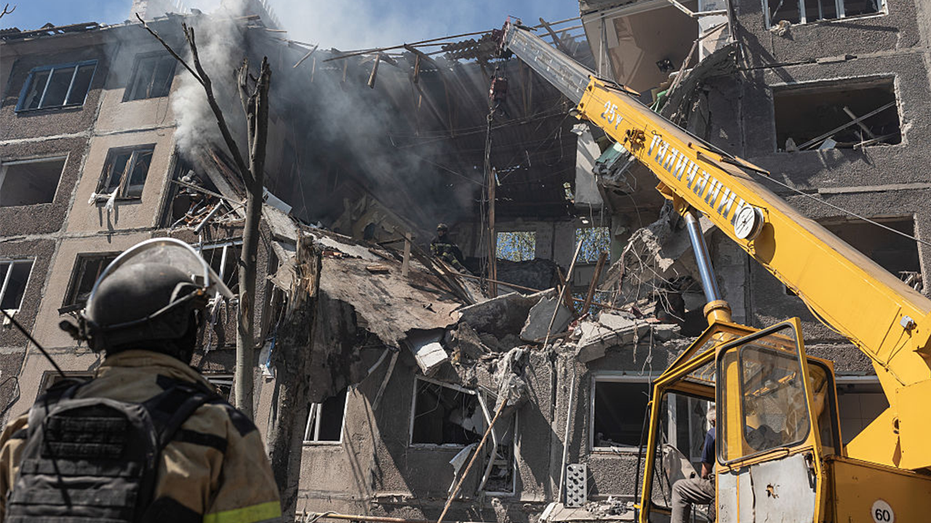UPDATE: Russia has launched its most significant assault on Ukraine this month, escalating tensions amid critical diplomatic talks occurring in Washington, D.C. The attack began late Monday night and continued into early Tuesday, coinciding with Ukrainian President Volodymyr Zelenskyy‘s meetings with U.S. President Donald Trump and European leaders at the White House.
Authorities report that Russia deployed a staggering 270 drones and 10 missiles targeting various locations across Ukraine. The Ukrainian Air Force confirmed that 230 drones and six missiles were intercepted, but 40 drones and four missiles successfully struck 16 locations, igniting large-scale fires, particularly in the central Poltava region. The precise number of casualties has yet to be disclosed.
Ukrainian Foreign Minister Andrii Sybiha expressed outrage at the timing of the attack, stating, “While hard work to advance peace was underway in Washington, D.C., Moscow continued to do the opposite of peace: more strikes and destruction.” His remarks underscore the urgent need for a ceasefire and lasting peace, as ongoing violence disrupts diplomatic efforts.
The strikes targeted crucial energy infrastructure, including oil refining and gas facilities—a direct violation of international humanitarian law, according to Ukraine’s Energy Ministry. This assault marks the largest since Russia launched 309 drones and eight missiles on July 31, amplifying fears of an escalating conflict as diplomatic resolutions appear increasingly distant.
In the wake of the attacks, Zelenskyy condemned Russia’s actions, declaring, “The Russian war machine continues to destroy lives despite everything.” He emphasized the need for international support to halt the violence, asserting that Russia’s continued aggression aims to undermine diplomatic efforts and exert pressure on Ukraine and its allies.
The situation is developing rapidly, and both sides have engaged in targeting critical infrastructure, heightening the stakes for Ukraine’s energy security. With the White House maintaining a cautious stance on military funding, Trump emphasized a need to balance American taxpayer interests with international commitments, complicating the geopolitical landscape further.
As the world watches, the ramifications of Russia’s latest offensive are profound, raising urgent questions about the future of peace talks and the safety of civilians caught in the crossfire. International observers and leaders are now looking to immediate actions that could de-escalate the situation and provide humanitarian aid to those affected.
Stay tuned for live updates as this story develops.
